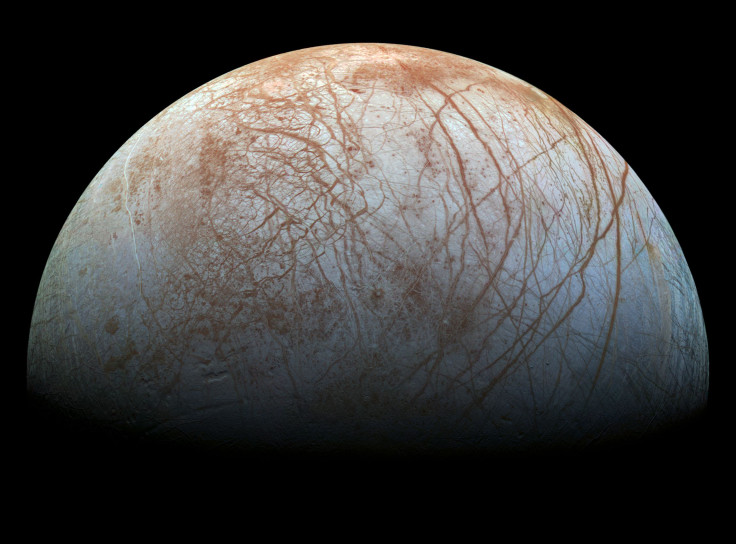Scientists Discover How Jupiter Moon Europa Produced Icy Layers, Subsurface Oceans

KEY POINTS
- Scientists explained how Jupiter's moon Europa produced layers and subsurface oceans
- A process known as differentiation may have led to the development of Europa’s oceans and layers
- Heat caused by radioactive decay may have triggered differentiation within Europa
A team of scientists explained how Jupiter’s icy moon Europa might have produced its interior layers and subsurface oceans. The process that created these features could also play a huge role in the evolution of alien life.
The team was led by planetary scientist Mohit Melwani Daswani of NASA’s Jet Propulsion Laboratory. He presented their findings during a virtual presentation for the recent Goldschmidt conference.
For their study, the scientists analyzed the data collected by the Galileo mission, which was launched by NASA in 1989 to study Jupiter and its natural satellites. Through the data, the scientists learned that Europa’s layers and subsurface oceans might have been created through a process known as differentiation. This process involves the separation of different components that make up the various features of a planet or cosmic body.
During this process, the scientists explained that Europa was separated into multiple layers, just like an onion. It also led to the breakdown of water-bearing minerals on the moon, which then created its oceans.
According to Daswani, Europa’s differentiation might have been triggered by heat within the natural satellite. The heat might have come from radioactive decay from the moon’s interior or Europa’s interactions with Jupiter and its other natural satellites.
“The interior of Europa is much denser than the outer layers,” Daswani told Space.com. “That already tells us a really important property of Europa's history and geology: It must have experienced high heat in order for that process of differentiation to occur.”
“Large ocean worlds that experience this heat in the interior may have a mechanism to build oceans,” the scientist added.
Since differentiation might have led to the formation of Europa’s oceans, studying the same natural process in other planets could provide valuable information regarding the evolution of alien life.
However, according to a scientist who was not involved in the study, water is not the only element needed for life to flourish. Aside from the presence of liquid water, other elements are also needed for the development of life.
“Life is chemical. Life powers itself with chemistry, which is all about the flow of electrons,” Steve Mojzsis of the University of Colorado said.
© Copyright IBTimes 2025. All rights reserved.





















